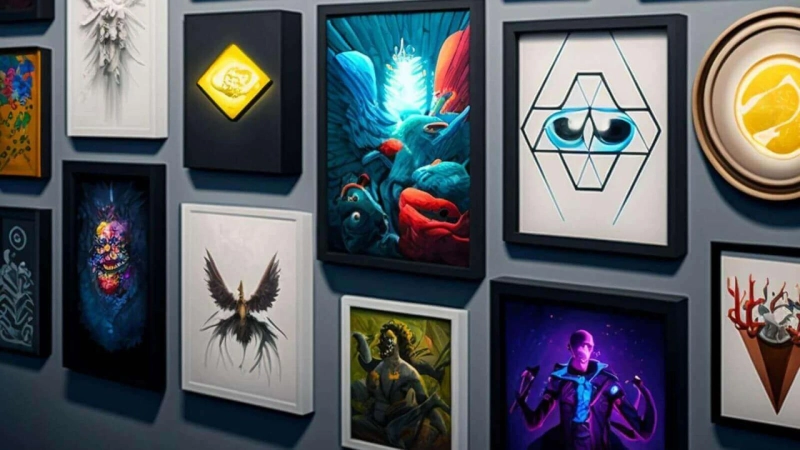Introduction
Non-fungible tokens (NFTs) are unique digital assets that have taken the world by storm over the past few years. From art to gaming to sports, the NFT market has seen an exponential increase in value and adoption. As a result, NFT marketplaces have become an integral part of the NFT ecosystem, providing a platform for these unique assets to be bought, sold, and traded. In this lengthy guest blog, we will explore the future of NFT marketplaces, including the latest trends, predictions, and challenges that they are likely to face in the coming years.
NFT Marketplace Trends
One of the main trends in the NFT marketplace is the increasing adoption of blockchain technology. As NFTs are stored on the blockchain, it is only logical that blockchain technology will play a crucial role in the development of NFT marketplaces. With blockchain technology comes increased security, transparency, and efficiency in NFT trade, which is attracting more and more traders and investors to the NFTs market.
Another trend that is shaping the future of NFT marketplaces is the emergence of new and innovative use cases for NFTs. From gaming assets to art and music, NFTs are being explored in various industries, creating a huge demand for new NFT marketplaces that can cater to these emerging markets.
Additionally, the growth of decentralized marketplaces, built on smart contracts and decentralized applications, is another trend that is shaping the future of NFT marketplaces. These decentralized marketplaces are becoming increasingly important as they offer users more control and independence in their NFT trades, free from the constraints of centralized platforms.
NFT Marketplace Future Predictions
In the coming years, the NFT marketplace will likely continue to grow and evolve at an exponential rate. With increased blockchain technology adoption and the emergence of new use cases for NFTs, it is predicted that the NFT market will continue to expand and attract more investors and traders.
Another prediction is that decentralized marketplaces will become increasingly popular as users seek more control and independence in their NFT trades. With the increase in the number of decentralized marketplaces, they may outnumber centralized platforms in the coming years.
Challenges
While the potential for growth in NFT marketplaces is vast, it is not without its challenges or roadblocks. One of the biggest challenges that NFT marketplaces face is the issue of security. As NFTs are stored on the blockchain, they are prone to hacking and theft, which is a major concern for many traders and investors.
Another challenge is the lack of consumer trust. As NFTs are a relatively new asset class, many consumers are still hesitant to invest in them. Trust between buyers and sellers on NFT marketplaces is crucial for the growth of the market, and ensuring that this trust is built will be a challenge.
Additional challenges include regulatory uncertainty, as many countries are still in the process of developing clear regulations for the NFT market. This can lead to confusion and uncertainty for buyers and sellers and can hinder the growth of the market.
Finally, there is the issue of scalability. As the NFT market continues to grow, the demand for blockchain technology to facilitate NFT transactions will also increase. Ensuring that the blockchain infrastructure can handle the increasing volume of transactions will be a challenge that NFT marketplaces will need to address.
With the increasing popularity of NFTs, the NFT marketplace will likely continue to evolve and innovate in the coming years. Here are some additional predictions that could shape the future of the NFT marketplace:
Increased adoption of NFT marketplaces among mainstream retailers: As the NFT market continues to grow, mainstream retailers will likely start to adopt NFT marketplaces as a way to broaden their customer base and offer a unique shopping experience.Development of more specialized NFT marketplaces: As NFTs continue to become more popular in specific industries, such as gaming or art, more specialized NFT marketplaces will likely be developed to cater to the unique needs of these industries.Integration of AI and machine learning in NFT marketplaces: As technology continues to evolve, AI and machine learning will likely be integrated into NFT marketplaces to enhance security, improve user experience, and facilitate more efficient trading.Growth of decentralized NFT marketplaces: Decentralized NFT marketplaces, which use blockchain technology to facilitate trading, are likely to continue to grow in popularity as consumers seek more control and independence over their transactions.Increased regulation of the NFT market: As the NFT market continues to grow, regulatory authorities will likely begin to implement stricter regulations to ensure the safety and integrity of the market. This could include requirements for NFT marketplaces to have a license or a register to trade NFTs.Evolution of NFT use cases: NFTs are becoming increasingly popular in multiple industries, from art to gaming to fashion, and the use cases for NFTs will likely continue to evolve and expand in the coming years. This could include NFTs becoming more integrated into traditional finance and becoming a more established asset class.
These predictions are just a few of the possibilities for the future of NFT marketplaces. The market is constantly evolving, and new trends and technologies could arise shortly that could have a significant impact. However, one thing is clear: the NFT marketplace is here to stay, and it is likely to continue to play a major role in the NFT ecosystem in the coming years.
Conclusion
In conclusion, the future of NFT marketplaces is bright, with the potential for continued growth and innovation. However, there are also significant challenges that need to be addressed for the market to prosper. By addressing these challenges and building trust between buyers and sellers, NFT marketplaces can become the go-to platform for trading and investing in NFTs. With the increasing adoption of blockchain technology and the emergence of new use cases for NFTs, the future is promising for the NFT marketplace development, and it will likely continue to be an integral part of the NFT ecosystem for years to come.



